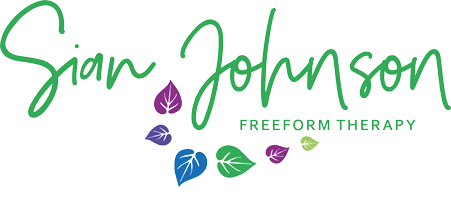
"The human heart yearns for contact - above all it yearns for genuine dialogue… each of us secretly and desperately yearns to be ‘met’ - to be recognised in our uniqueness, our fullness and our vulnerability.”
Richard Hycner and Lynn Jacobs
A Brief Explanation of Relational Gestalt Psychotherapy
The German word gestalt is hard to translate into English, but is generally accepted to mean “whole.” In Gestalt therapy, feeling whole is associated with feelings of aliveness and connection to our own unique experience of life and living. And as such Gestalt Therapy endeavours to view clients holistically.
Gestalt Psychotherapy is a humanistic style of talk therapy that considers the patterns that emerge in all of our relationships are key to who we are and how we feel. This includes the relationship between client and therapist. By paying attention to what is happening between you and I, we can bring into awareness what is happening for you in other relationships.
Gestalt considers that we already have the necessary skills and qualities to face our difficulties and solve problems. And that sometimes we get stuck and need some assistance. My role as a therapist is to help you unearth insights into your situation, what your part is in that and experiment with finding new ways for you to resolve the difficulty.
I have a willingness, interest and serious commitment to engaging with clients as a collaborator in mutual partnerships on a therapeutic adventure.
A Bite-Size Background to Relational Gestalt Psychotherapy

Gestalt therapy was developed by Fritz Perls, Laura Perls and Paul Goodman, in the 1940’s and 50’s as an alternative to more traditional Freudian psychoanalysis. Both Fritz and Laura were trained in psychoanalysis and gestalt psychology, but dissatisfaction with psychoanalytical theories and methods led Fritz to develop a new approach.
The 1951 book Gestalt Therapy: Excitement and Growth in the Human Personality by Fritz Perls and colleagues Paul Hefferline and Philosopher Paul Goodman, outlined this radical new form of psychotherapy. There have been many changes and developments in Gestalt Therapy since its introduction with two primary tenets remaining at the core
- The therapists role is not to judge or interpret, thoughts, feelings and circumstances or to offer advice but does bring some expertise in therapeutic relationships to work alongside the client in a therapeutic alliance.
- The client is seen as personally responsible for their own life and decisions. It is assumed that they can already deal effectively with their life problems. Where they may need support, is to bring into awareness those things within them that are blocking their way to making the decisions and choices that enable their desired growth.
Six Principles of Relational Gestalt Psychotherapy:
- Focussing on your real-time experience in each moment; known as being in the ‘here and now’
- Developing a therapeutic working alliance with us as equals; a ‘you and I’ partnership
- Taking a holistic approach that incorporates not only what you are experiencing cognitively but emotionally and somatically, including the 5 senses.
- Taking into account the environmental and social contexts of your life known in Gestalt as ‘the field’
- Developing an awareness of the creative ways you make decisions and choices as a result of your circumstances (your environment) and how these affect your life
- The understanding that every person has the capacity to, and an innate curiosity and desire to grow
“Creative therapy is an encounter, a growth process, a problem-solving event, a special form of learning…”
Joseph Zinker
If you are ready to discover more, arrange a no charge Consultation Session. By the end of your call, we will both have a sense of whether we are a good match for working together.
I look forward to meeting you.

References
- Perles, F., Hefferline, R. F., and Goodman, P., (1951) Gestalt Therapy: Excitement and Growth in the Human Personality. London: Souvenir Press
- Clarkson, P. (1989) Gestalt Counselling in Action. London: Sage Publications
- Zinker, J. (1977) Creative Process in Gestalt Therapy. New York: Vintage
- Joyce, P., Sills, C., (2018) Skills in Gestalt Counselling and Psychotherapy. London: Sage Publications
